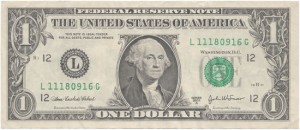Ludum Dare October Challenge returns: Sell a game! Turn pro!
Posted by Rampant Coyote on September 30, 2014
 The Ludum Dare October Challenge, started 4 years ago, has kicked off again. Your mission, instead of making a game, is (deceptively) simple:
The Ludum Dare October Challenge, started 4 years ago, has kicked off again. Your mission, instead of making a game, is (deceptively) simple:
- Sell a game.
- Make at least $1 (Or equivalent in other currencies)
- And thereby become a pro.
The cool thing about this one is that there are very few rules. You don’t have to start the game in October. You don’t have to even make money on it in October. You just need to finish the game and set things in motion.
More info can be found at the Ludum Dare October Challenge 2014 page.
There are some additional resources (including ways to “monetize”) that can be found at the Ludum Dare October 2014 Resources & Opportunities Page. There are lots of ways to earn at least $1, including advertising, contests, direct sales through many different marketplaces, sponsorships, etc.
Anyway – it’s a fun idea. Worth checking out. At least worth $1, amiright? The goal is not to get rich (though if it happens – awesome!). It’s to get the ball rolling. It’s not to turn it into a vocation, but to start to turn it into something more than a hobby for those who love ’em. So, if you’ve got something you think you can finish, polish, and make ready for the marketplace in 31 days… well, why not do it now?
Filed Under: Biz, Indie Evangelism - Comments: 4 Comments to Read
Anon said,
Sounds somewhat “fishy” to me.
Getting a one-time payment of $1 (or more) doesn’t make you a “pro”. It just happens that your game made you some money.
And, yes, it doesn’t matter if you are indie or not.
If you get *regular* income from game development (whatever function – coding, designing, art etc.) then you are a “pro” – even if it’s only part-time and you still have a main job to support you.
This includes shareware authors of yore, too: They got regular payments and could at least partially make a living from it.
Getting a one-time payment is not making your game(s) bad – it just means that while you are a (self)published game author you are still in amateur league.
So, yes, if every game makes you a single dollar then you are a pro – even if you are an idiot in economy! :o)
The amount of games actually no difference:
For instance, a pro could be an artist who gets hired by a game company for a single game. He/she gets several monthly payments and can be considered a pro.
But: If this is the only game he/she worked on then he/she is a “former pro game developer”. In other words he/she *was* a pro.
So better keep developing (and earning money) if you want to *be* a pro game dev! 😉
Rampant Coyote said,
LOL – of course!
I don’t think anybody’s gonna take the “pro” thing too seriously with this competition. It’s a starting point, an ice-breaker, not a final destination. Sorta like the regular game jams – it’s about making complete games – going through the whole process – in the course of a weekend or whatever. It’s very valuable as a tool for learning the process, building skills, building confidence, etc. But nobody’s really going to be serious about listing their Game Jam games in their professional credits. 🙂
But hey – just like an artist selling their first painting or accepting their first commission – it’s the beginning of a professional career. Or a side-job. Or something. But sure – gotta keep going from there!
Anon said,
I agree with all you said, but:
> But nobody’s really going to be serious about listing their Game Jam games in their professional credits.
You sure about that? 😉
Rampant Coyote said,
The human race never ceases to amaze me to its levels of perversity (and sometimes downright stupidity) of the fringe, but I’m trying to get over my tendency to add lengthy exceptions to my generalizations. I’m sure there are stupid (and possibly awesome) exceptions… although the only cases I know of were where the game jam results did enjoy at least a little post-jam improvement to turn into a viable product. (I’m partial to the game “Receiver,” in fact, which began life as a game jam project).